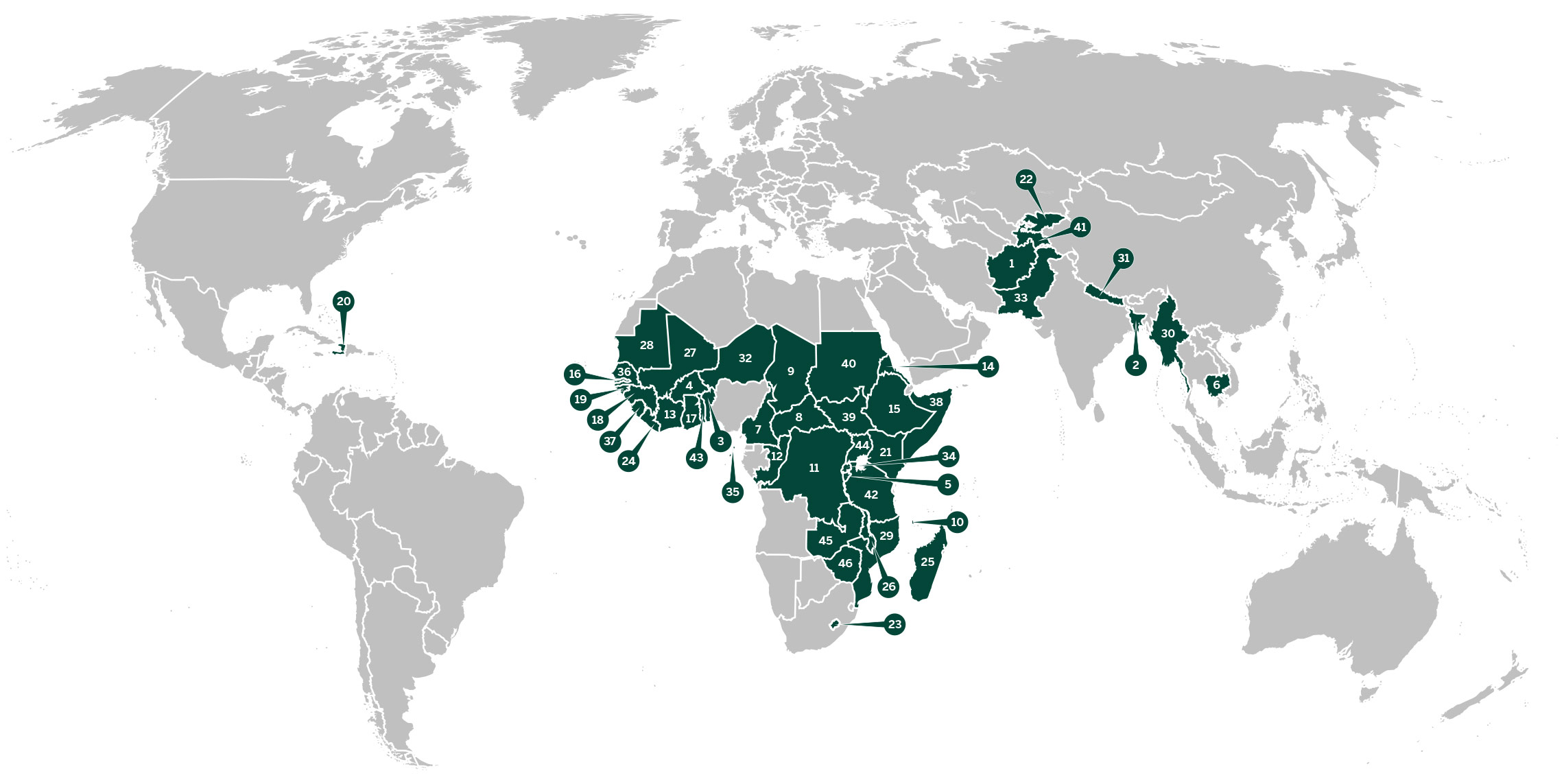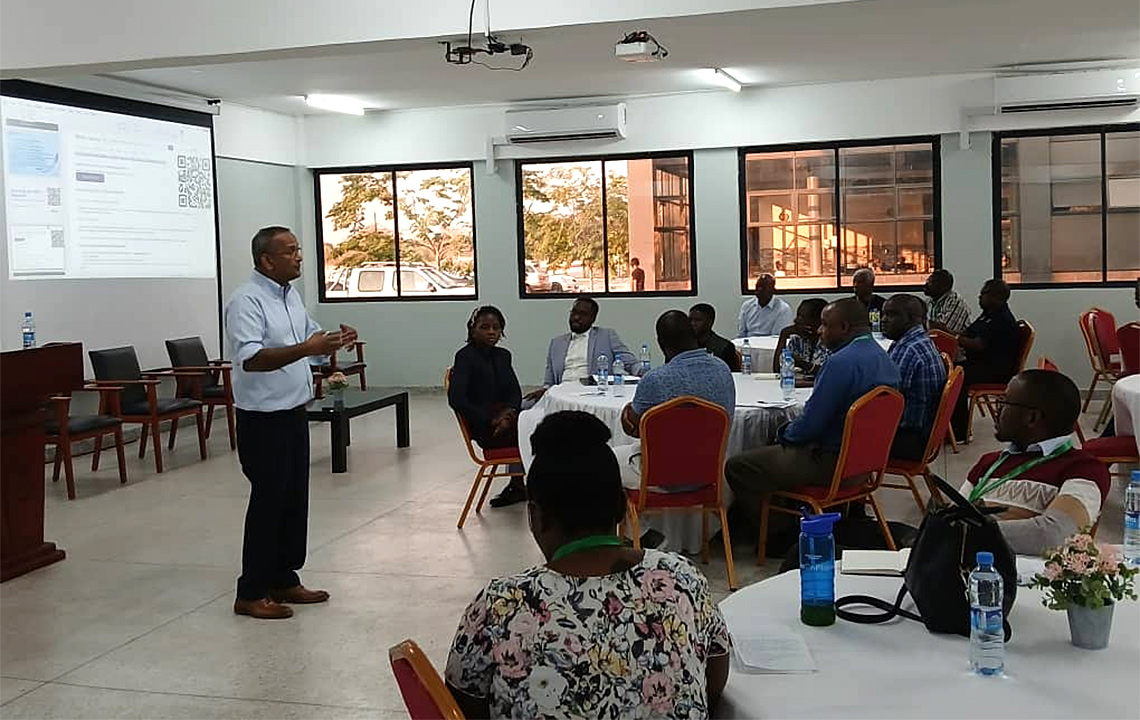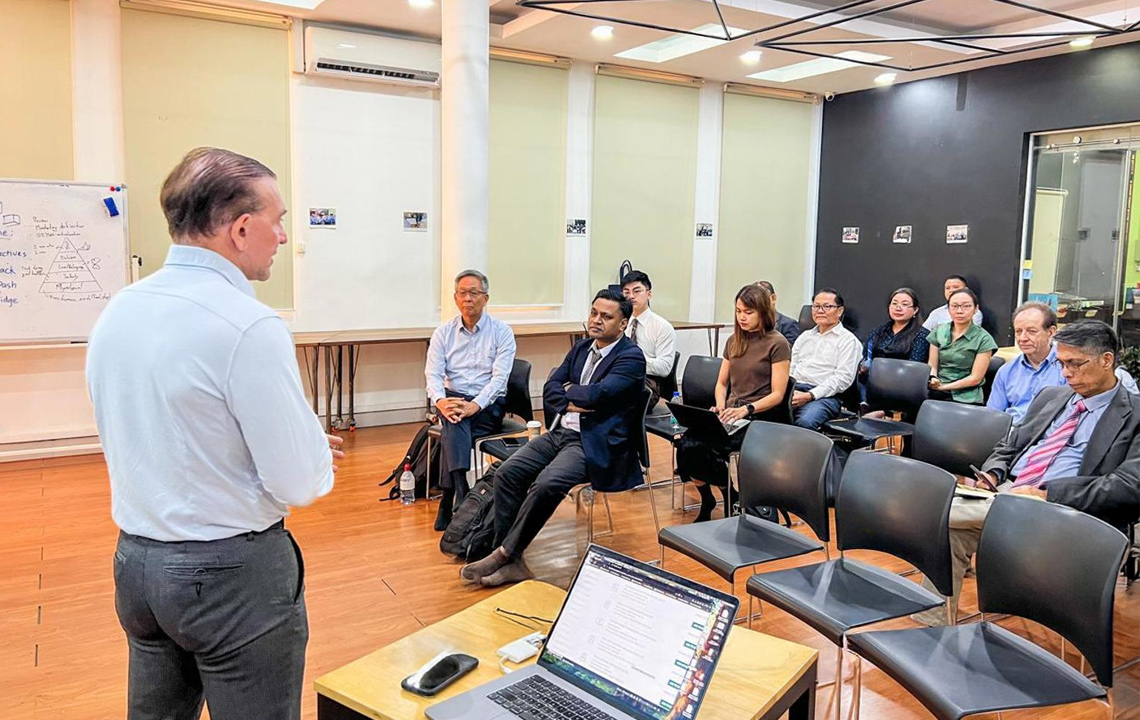
When Paul Beamish, HBA ’76, PhD ’84, launched the initiative in 2010, he hoped to widen access to high-quality business education. Based on his decades-long experience with China, he had already seen the latent demand that existed in countries that had no case method tradition. So it came as no surprise that within the eligible countries, there were many institutions, deans, and faculty members who would welcome access to so much high-quality teaching material.
Despite its name, the 39 Country Initiative provides educational support to the world’s 46 poorest countries – from Afghanistan to Zimbabwe – by offering free case materials and in-person training for faculty. In 2025 alone, it aims to train 1,000 professors, each with the potential to impact hundreds of students annually. Over the next five years, the goal is even bigger: 5,000 trained faculty members reaching more than one million learners, who will then pass their knowledge on to others, continuing the virtuous cycle.
What began as a small act of academic generosity, rooted in frustration, has evolved into a scalable model for global educational change. Beamish is now doubling down with a high-impact strategy: top-tier case method experts will travel to a single city for an intensive week, delivering workshops at three or more different institutions and reaching about 100 faculty members in each city. Targeting 10 countries in 2025, the initiative expects to train 1,000 professors and impact 200,000+ students – all within one year.
“You can send people all the resource material in the world, but at the end of the day, they want to talk with a human being, not have their questions answered by AI, and they much prefer to do it face to face,” said Beamish. “[This formula] is working really well, and we’re confident it’s the way to go. Thankfully, it’s highly scalable.”
“You can send people all the resource material in the world, but at the end of the day, they want to talk with a human being ... “[This formula] is working really well, and we’re confident it’s the way to go.”
– Paul Beamish, HBA ’76, PhD ’84, Founder, 39 Country Initiative
Lightbulb moments: Stories from Zambia and Cambodia
Charles Dhanaraj, Ivey PhD ’00, a professor at Georgia State University and former Ivey faculty member, piloted the new model in Zambia in 2024. Growing up in India, he understood the limits of lecture-based education and became a passionate advocate for case-based learning.
“It’s not just about making cases available. It’s a major institutional change,” he said. “The case method challenges students to think critically and to engage. It was an aha moment for me to see how much interest there was. When I finished the workshop, it was like a lightbulb had come on.”
During his trip, Dhanaraj even co-wrote a live case with a local professor – an impromptu exercise symbolizing the initiative’s potential for local ownership. Later, one university he visited organized its own case teaching workshop, further reinforcing the program’s lasting impact.
“It’s not just about making cases available. It’s a major institutional change.”
– Charles Dhanaraj, Ivey PhD ’00, reflecting on faculty transformation in Zambia
Andrew Delios, Ivey PhD ’98, Vice-Dean at NUS Business School, experienced a similar reaction while leading recent workshops in Cambodia.
“At first, there’s disbelief, then surprise… and then they’re like, ‘This is amazing. How do I sign up?’” he said.
At the Royal University of Phnom Penh, Delios said students and faculty even expressed eagerness to write cases about Cambodian companies, viewing publishing with Ivey as a career milestone.

Charles Dhanaraj teaching in Zambia
A volunteer-driven movement
Remarkably, the initiative runs almost entirely on volunteer effort. Workshop leaders travel economy class, with only basic expenses covered, yet many describe the experience as personally transformative.
“If I can’t spend a few days of my year doing outreach where the potential returns are so profound, then there’s something wrong with me. I’m happy to do it,” said Delios.
For David Sharp, Ivey Professor Emeritus, Beamish’s call for volunteers reignited his passion for education – and fulfilled a travel dream. In April, he led the initiative's recent workshops in Nepal.
“The initiative is a brilliant idea. It costs the School only a modest amount for staff support and trainer travel, yet the good it does is immeasurable,” he said. “I'm delighted to have the opportunity to do something worthwhile for the School.”
While the premise is straightforward, execution is not. Beamish said many eligible universities lack basic infrastructure, and finding the right contacts can be a major challenge.
“You’d think it would be the easiest thing in the world to let people know about it and they’d be signing up in droves. Well, no such luck,” he said. “Many universities in these countries don’t even list the names of their deans on their websites.”
“If I can’t spend a few days of my year doing outreach where the potential returns are so profound, then there’s something wrong with me. I’m happy to do it.”
– Andrew Delios, Ivey PhD ’98, Vice-Dean at NUS Business School
Other hurdles include spotty electricity, unreliable internet, and, sometimes, deep skepticism.
“People would ask, ‘What’s the catch?’” Beamish said, recalling an early meeting in Nairobi where a dean initially questioned his motives. Once reassured, the dean embraced the initiative – estimating he could immediately hire three new faculty members with the money saved on teaching materials.
Moments of transformation continue to fuel the work, such as a donation of books that increased a major Ethiopian university’s entire library holdings by 30 per cent overnight. Though physical shipments will always be modest in numbers, the symbolism endures: access changes everything.

Andrew Delios teaching in Cambodia
eligible countries
professors registered for free access to cases
professors trained each year, reaching 200,000 + additional students
Case Teaching Workshops in 2025
container shipments made to date
The next frontier
Looking ahead, Beamish hopes to scale the initiative even further, especially in Francophone Africa, with the assistance of Ivey Professor Elie Chrysostome. One-third of the eligible countries are French-speaking. Thanks to new translation tools driven by artificial intelligence, Ivey Publishing can now offer significantly more French-language content because of the much lower translation cost per case.
Ultimately, Beamish hopes to see the case method take root in each country, with universities and faculty members who wish to engage. Ideally, within each country, case method champions will emerge – local nationals who will become the go-to persons for both case teaching and case writing.
But scaling up requires ongoing support.
“The good news is that even $100,000 allows us to reach 1,000 faculty members and 200,000+ students per year.”
– Paul Beamish, HBA ’76, PhD ’84, Founder of the 39 Country Initiative
The frustrating part is that there are still thousands of universities we aren’t reaching yet,” said Beamish. “The 39 Country Initiative certainly broadens Ivey’s reputation.”
Because of this self-reinforcing cycle, the 39 Country Initiative is more than just a program – it’s evidence that Ivey is using its resources to both expand its global impact and change lives – one case at a time.
